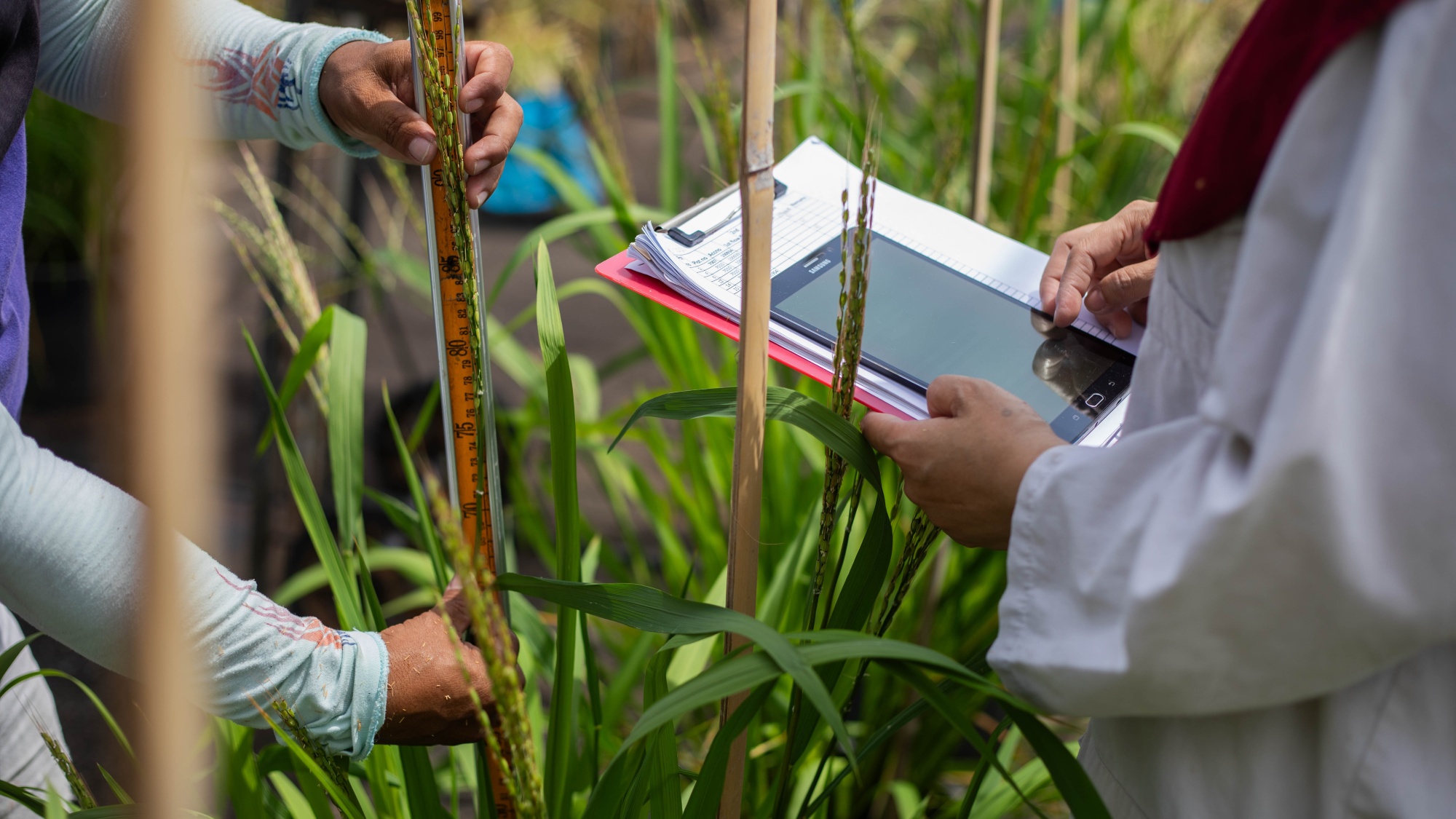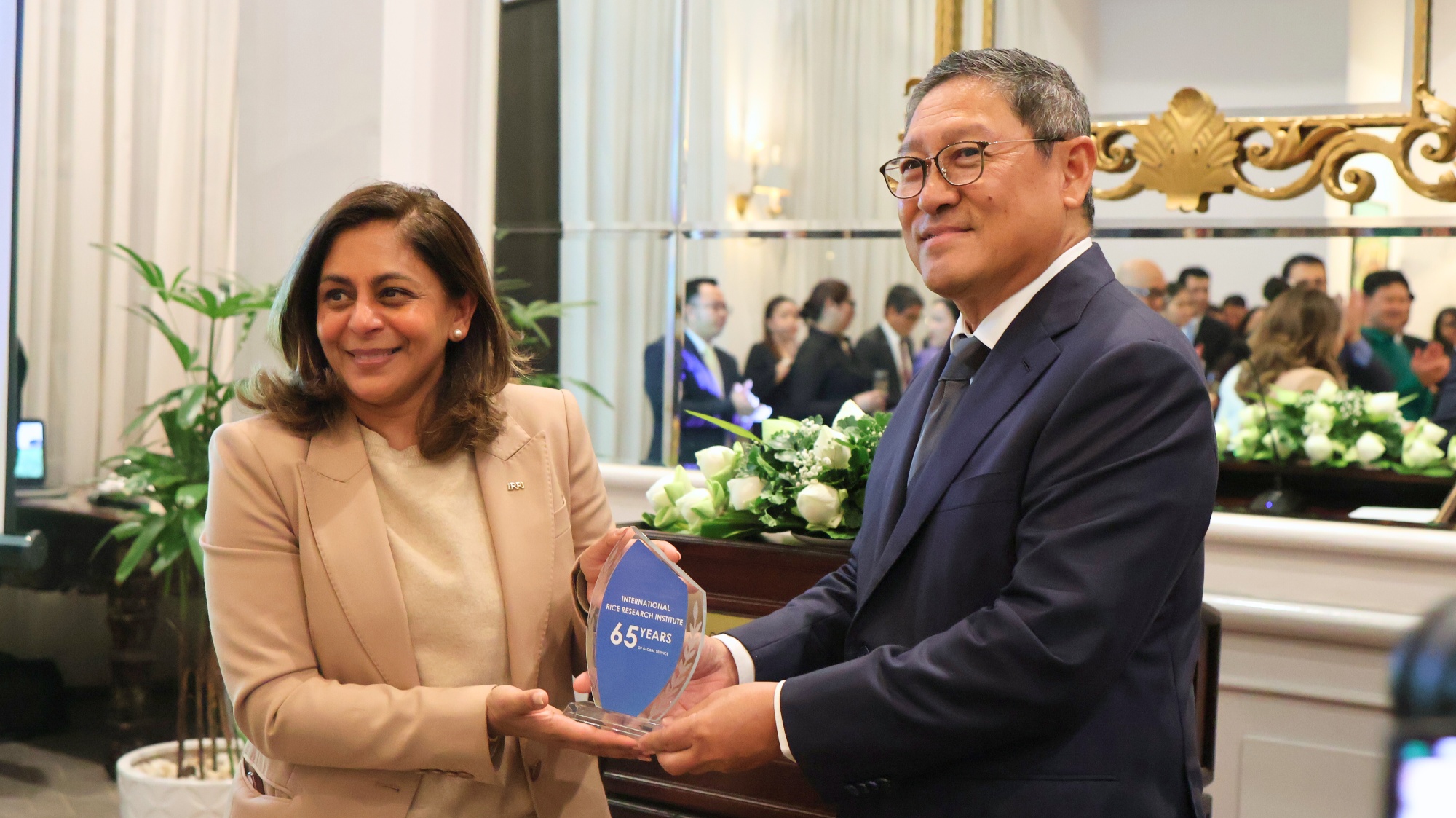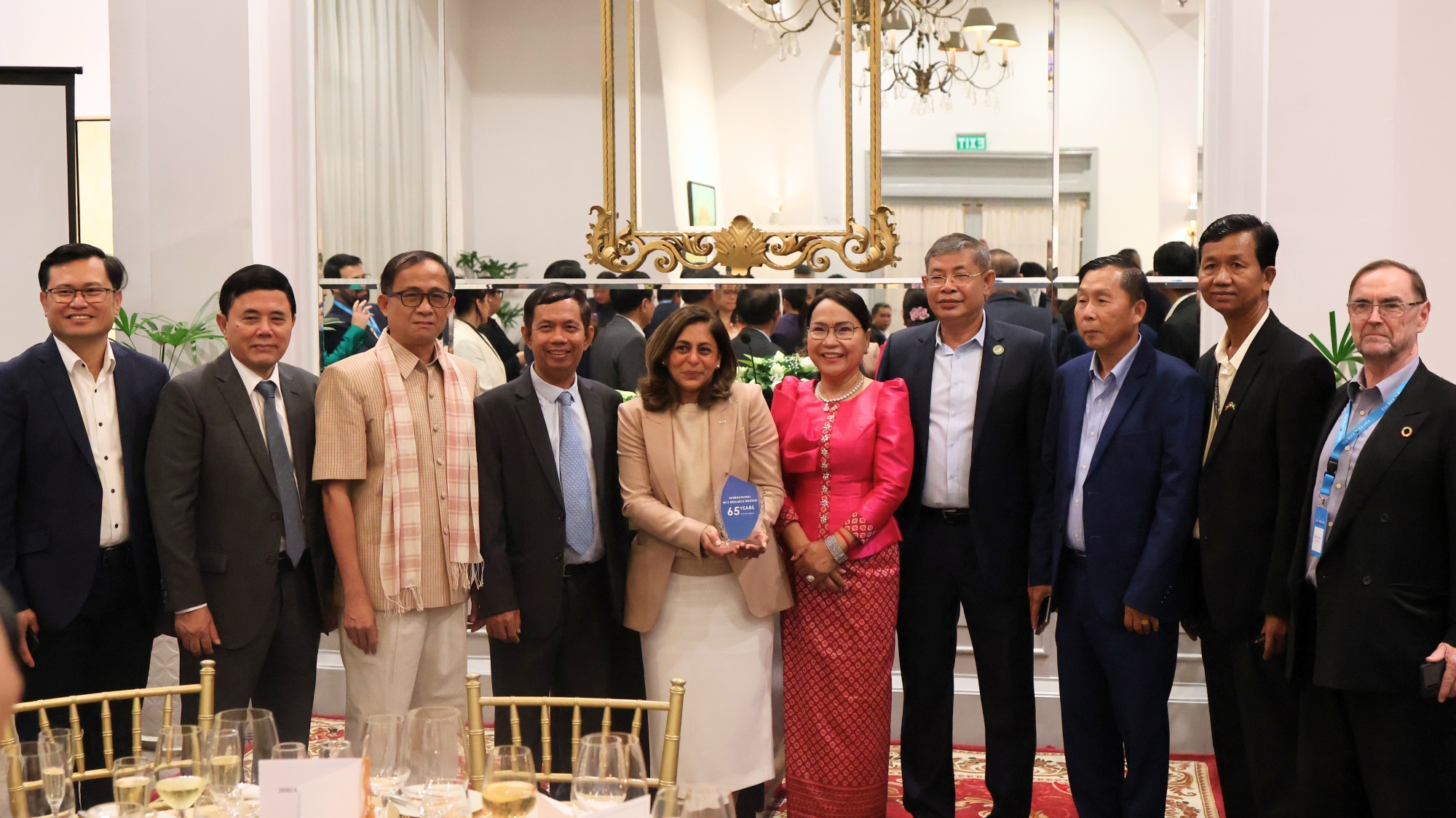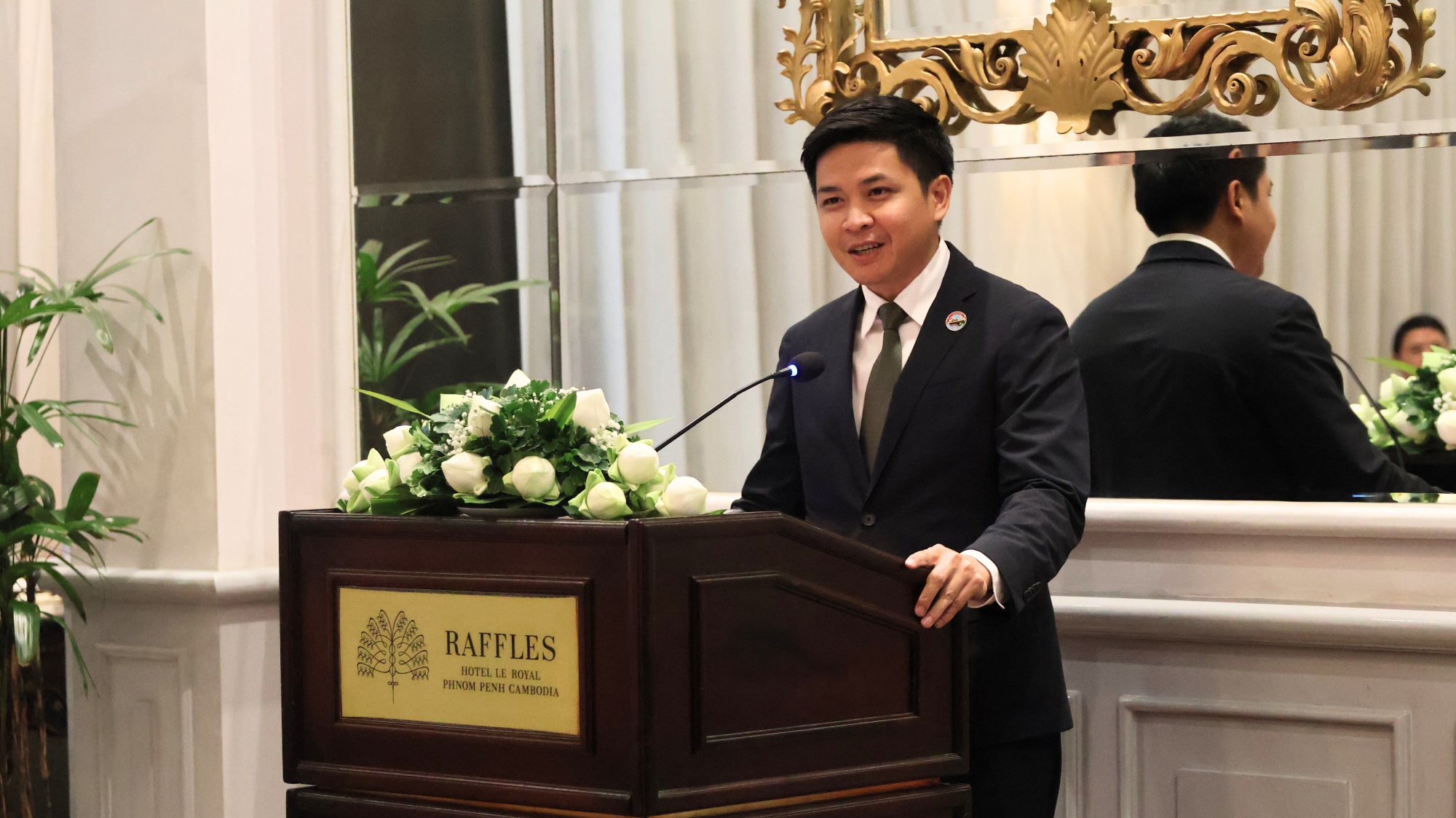Cambodia recognizes IRRI for contributions to the rice sector

Phnom Penh, Cambodia (9 November 2025) - The Royal Government of Cambodia, through the Ministry of Commerce, conferred upon the International Rice Research Institute (IRRI) a token of appreciation recognizing its outstanding service to the nation’s rice industry.

The recognition was led by His Excellency Sok Chenda Sophea, Deputy Prime Minister of the Kingdom of Cambodia and given to IRRI Director General Dr. Yvonne Pinto during the IRRI 65th Anniversary partnership night, hosted by The Rice Trader and the Ministry of Commerce of the Kingdom of Cambodia. The recognition aims to acknowledge IRRI’s contributions to the country’s rice sector in the past 65 years, through its longstanding partnerships with the Ministry of Agriculture, Forestry and Fisheries (MAFF), the national academic institutions, and the private sector.
IRRI and Cambodia have maintained a strong partnership for close to four decades, working together to build a future-looking agricultural system. This collaboration was formalized in 1986 through a Memorandum of Understanding that paved the way for sustained cooperation in research, capacity building, and technology development with MAFF, the General Directorate of Agriculture (GDA), the Cambodian Agricultural Research and Development Institute (CARDI), the Royal University of Agriculture (RUA), and the Provincial Department of Agriculture, Forestry, and Fisheries (PDAFF), to name a few.

“Cambodia and IRRI have shared a decades-long partnership focused on joint research, seed development, and varietal improvement. IRRI has trained Cambodian agronomists and researchers and supported sustainable rice cultivation. Built on trust and shared goals, this enduring cooperation stands as a model of long-term collaboration advancing innovation, food security, and farmer resilience,” the Deputy Prime Minister said.
One of the most notable milestones in this partnership was the conservation of duplicates of the country’s traditional rice varieties in the International Rice Genebank —the world’s largest collection of rice genetic diversity hosted in the IRRI Philippines headquarters—following hardships faced by Cambodia in the 1970s. By the 1980s, IRRI and the Cambodian government reintroduced over 700 of these traditional rice varieties back to the country, helping to restore Cambodia’s valuable rice genetic heritage. Today, the International Rice Genebank holds some 4,677 Cambodian rice accessions in trust, ensuring their conservation for future generations.
“This honor reflects the successful collaboration of IRRI with the Cambodian researchers, farmers, policymakers, government agencies, and the private sector. This is all made possible by the MAFF who have welcomed decades of co-creation, innovation, knowledge-sharing, and friendship with us in the last six decades,” said Dr. Yvonne Pinto, IRRI Director General.
Today, IRRI’s and in-country partners in Cambodia continues with ongoing projects, co-developing climate-resilient rice varieties that sustain yields under drought, heat, and flooding. To strengthen water management amid climate change, IRRI integrates modeling, satellite data, and field research to assess water availability and productivity in rice-based systems. In Cambodia, where over 90% of rice is direct-seeded, productivity improvements are driven by mechanized row seeding and digital platforms such as the Chamka App, which expand farmers’ access to seeding services. Together with partners, IRRI promotes ecologically based pest management that incorporates farmers’ preferences, gender inclusivity, while research on rice–fish enhances climate adaptation. Investments in post-harvest technologies improve processing efficiency, enable low-carbon rice straw management, and support biodiversity. Additionally, the Climate Smart Risk Mapping and Adaptation Planning Tool (CS-MAP) and monitoring, reporting, and verification (MRV) systems strengthen adaptation planning, crop management, and access to carbon markets.
In the context of the dual imperative for science innovations and enabling policy for trade, the recognition also signifies new opportunities for IRRI to support the Ministry of Commerce in its efforts to further strengthen Cambodia’s position in international trade and to ensure diverse choices for consumers.

Representing Her Excellency Cham Nimul of the Ministry of Commerce, His Excellency Samheng Bora, Secretary of State of the Ministry of Commerce and Chairman of the Export Promotion Task Force reaffirmed Cambodia’s commitment to work with IRRI and key partners to advance sustainable soil and water management, enhance post-harvest quality, and expand access to high-value markets, while further deepening cooperation in digital agriculture, climate adaptation, and market intelligence to help farmers compete and thrive globally.
“This token embodies the spirit of partnership that continues to guide our institutions and our shared mission. Cambodia remains firmly committed to advancing the competitiveness and sustainability of our rice sector. We will continue to work closely with IRRI and our national partners to strengthen agricultural research, extension capacity, seed system development, and varietal dissemination.”
Dr. Pinto highlighted that IRRI aims to support the Ministry of Commerce in connecting scientific innovation with market needs, enabling stakeholders across the rice value chain to make informed decisions and leverage IRRI’s research and partnership models to capture opportunities in both existing and emerging markets.